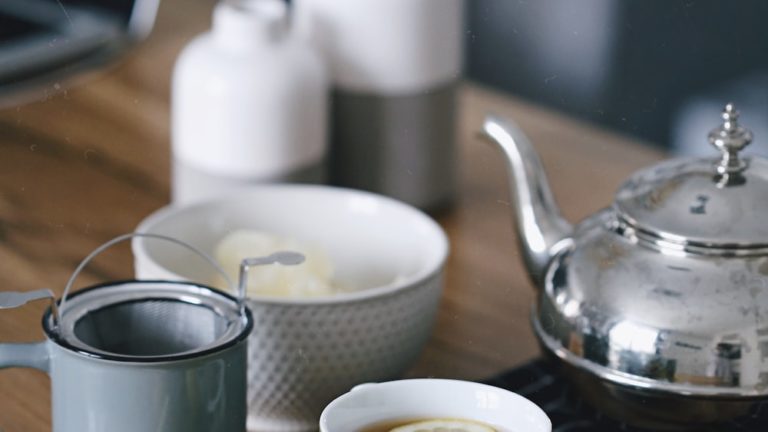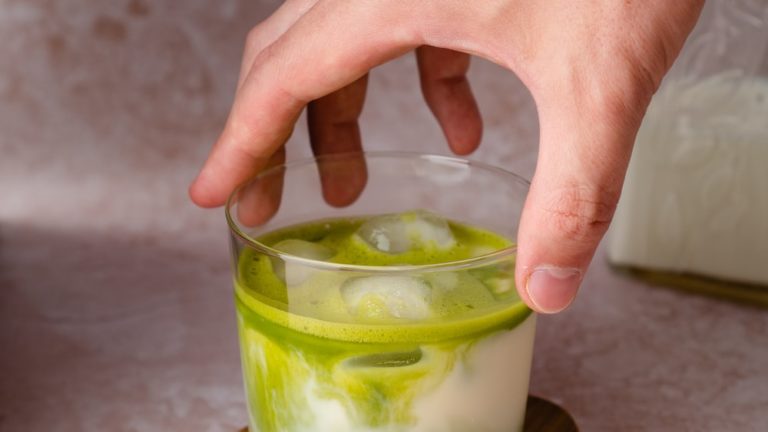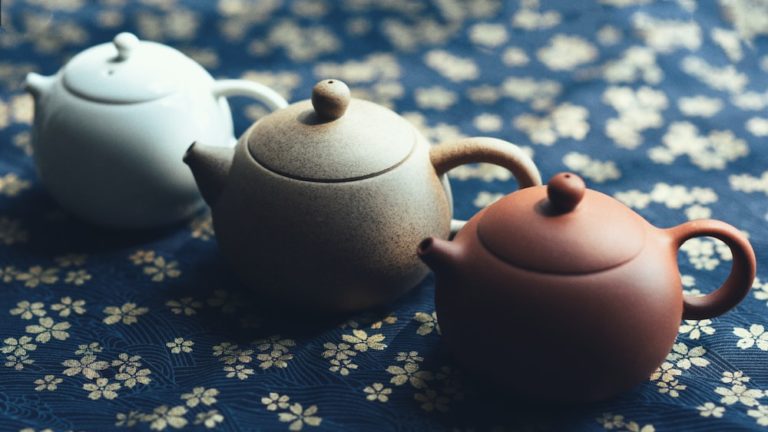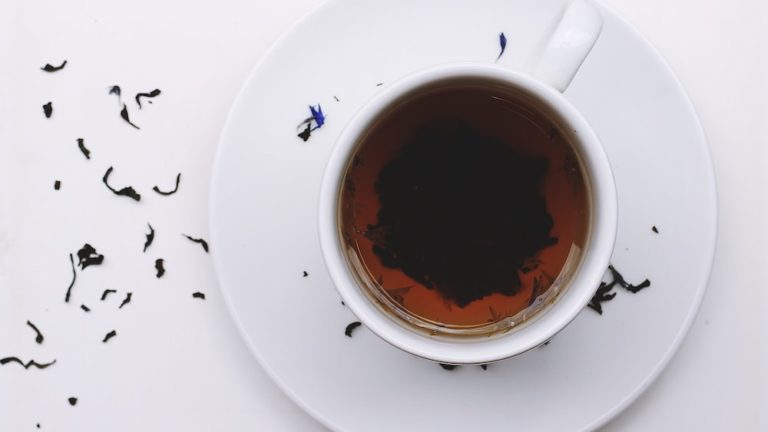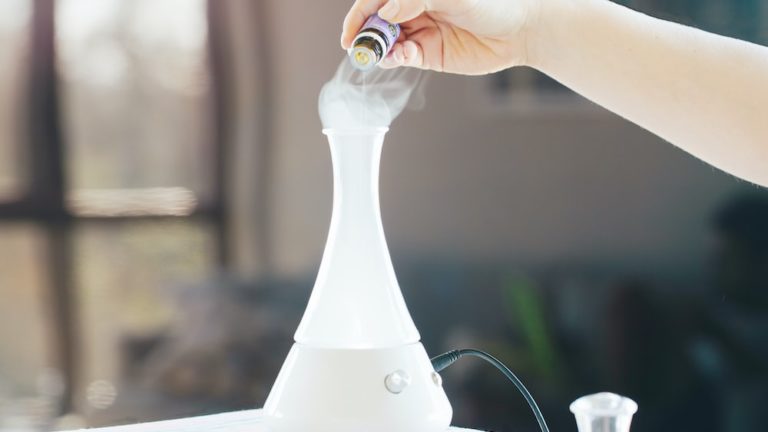Can Green Tea Help You Sleep? 11 Benefits You Need To Know
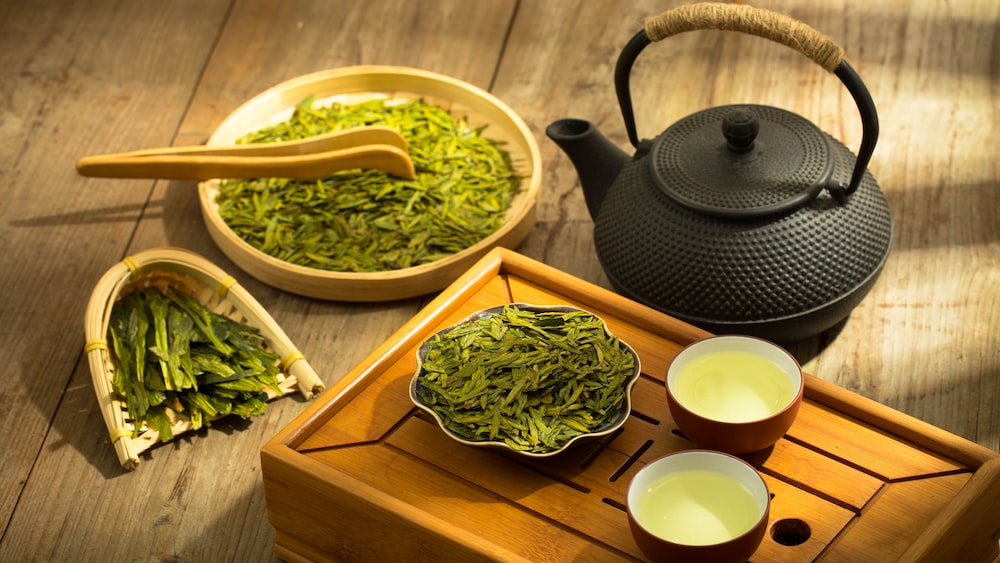
Can Green Tea Help You Sleep? 11 Benefits You Need To Know
Hello, tea lovers and health enthusiasts! How many of you have ever wondered: can green tea help you sleep? After all, it’s a big world of tea out there, and you, dear readers, are like diligent tea detectives, sniffing out the secrets within each tantalizing brew. Well, you’ve come to the right place, as today we’ll take a sip – er, take a peek – into the soothing world of green tea and its potential effects on sleep; a topic that’s as intriguing as it is steeped (get it?) in hot debate!
Now, we all adore the warm comforting hug that a cup of tea provides. Ah, just the thought brings an involuntary stretch to my arms and a craving for my favorite Earl Grey. But today, it’s not Earl Grey in the spotlight. Instead, we’re setting our sights (and taste buds) on the ever-popular green tea.
Turns out, green tea isn’t just known for its fresh, verdant flavor. Proponents of this emerald brew also tout its possible ability to enhance your sleep. Sounds tempting, doesn’t it? Well, pull up a cup and let’s brew some knowledge together!
Understanding Green Tea
But, hold on to your teacups, people! Before we brew this intriguing topic further, let’s make sure we’re well-versed on what green tea actually is. It’s time for a quick crash course in Green Tea 101!
What is Green Tea?
Green tea, my friends, hails from the evergreen leaves of Camellia sinensis, the same shrub that graciously gifts us all types of true tea, including black and oolong. What sets green tea apart? Well, it’s all in the processing.
After the delicate leaves are plucked, they’re quickly heated – either steamed or pan-fired – to prevent oxidation, thus preserving the lovely green color, characteristic flavor, and heap of health benefits that make it a darling among tea lovers and health enthusiasts.
Can I let you in on a charming tea secret? Did you know that depending on the region, harvesting time, and processing, green tea can offer a veritable smorgasbord of taste sensations – from sweet and floral to savory and vegetal? No wonder it’s beloved around the globe!
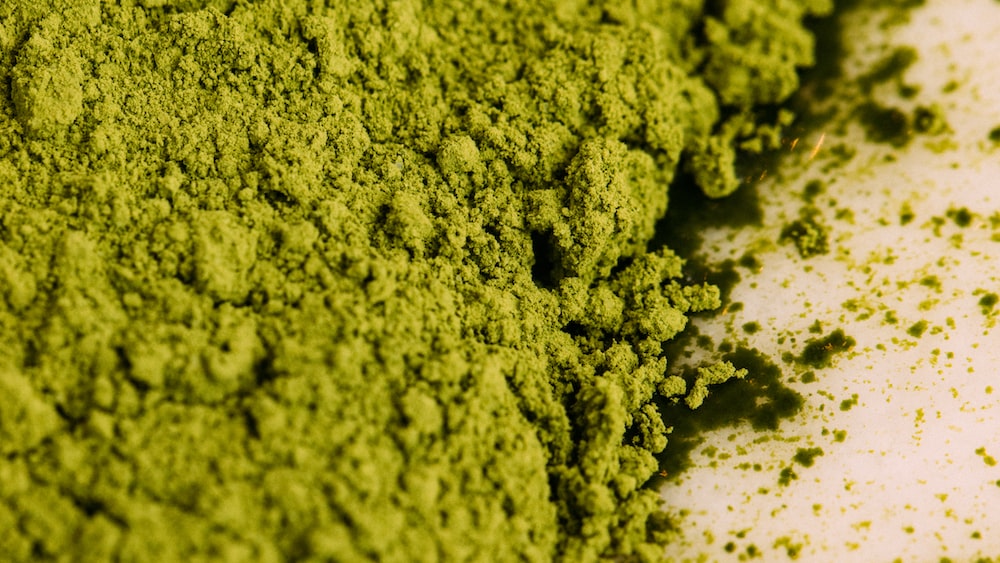
Green tea is different from other types of tea because it is quickly heated after being plucked to preserve its green color, flavor, and health benefits.
The Key Components of Green Tea
Now, let’s steep ourselves into the biochemistry of green tea for a moment. Picture a tea leaf as a miniature treasure chest of health-benefitting compounds. Among these, two particular components play a significant role in our study of green tea and sleep: L-Theanine and caffeine.
L-Theanine, an amino acid found abundantly in green tea leaves, serves as the mellow party host at our tea party, promoting relaxation and managing stress. Caffeine, on the other hand, likes to keep things lively. It’s the wakeful, energetic guest who sometimes stays a tad too long at the party, potentially influencing our sleep.
But don’t be too quick to place your bets on caffeine as the sleep thief. As you’ll soon see, this dynamic duo’s interaction paints a complex picture when it comes to green tea’s impact on our slumbers.
The Connection Between Green Tea and Sleep
Alright, now that we’ve got our green tea basics down pat, it’s time to tackle the juicy question: can green tea, with its harmonious blend of L-Theanine and caffeine, help you sleep better? Here’s where we dive into the deep end of the tea pot and discover what science has to say.
The Role of L-Theanine
Here’s the scoop, friends: L-Theanine, this charming amino acid we keep mentioning, is quite the peacekeeper in your cup of green tea. It promotes relaxation without causing drowsiness – a neat trick in our hustle-and-bustle world – and this can indirectly benefit your sleep.
More so, numerous studies corroborate L-Theanine’s potential to improve sleep quality. One research doesn’t just stop at humans but ventures into the adorable realm of boys and their pets – specifically, young male rats. Yes, you read that right! It found that L-Theanine intake improved sleep quality in these active little guys. So, it’s reasonable to ponder that if it can help our rat buddies sleep better, there just might be a chance for us, too, right?
Still, before you rush to proclaim L-Theanine as the ‘Prince of Sleep’, remember that it doesn’t work in isolation. That’s right, our friend caffeine has words to say in this conversation.
The Impact of Caffeine
Indeed, caffeine plays a role in this dynamic dance of sleep and tea. True, drinking a cup of molten java just before bed might feel like inviting a five-piece brass band to a meditation session. However, green tea contains significantly less caffeine than coffee. Plus, the presence of our good friend L-Theanine helps balance caffeine’s stimulatory effects.
Sounds confusing, right? Picture it like a sophisticated tea waltz where L-Theanine and caffeine move in harmony, choreographing your body towards relaxation and gentle alertness. This synergy might contribute to improving your sleep, but the true effects can vary. So, what does this mean in practice? Let’s spill the tea in our next section.
11 Benefits of Drinking Green Tea Before Bed
Now onto the heart of the matter. What are the potential benefits you might experience when you invite green tea to your nighttime routine? Buckle up, dear readers, as we embark on an enticing exploration through 11 potential benefits of sipping green tea before bed!
1. Enhances Sleep Quality
Who wouldn’t want to dive into a sea of calm or ride a wave of tranquility to the shores of sleep? Enter green tea with its L-Theanine content. As per ml lcgt, a brilliant study in Pharmacology, Biochemistry, and Behaviour revealed L-Theanine’s potential to not just improve sleep quality, but also reduce anxiety. Green tea, anyone?
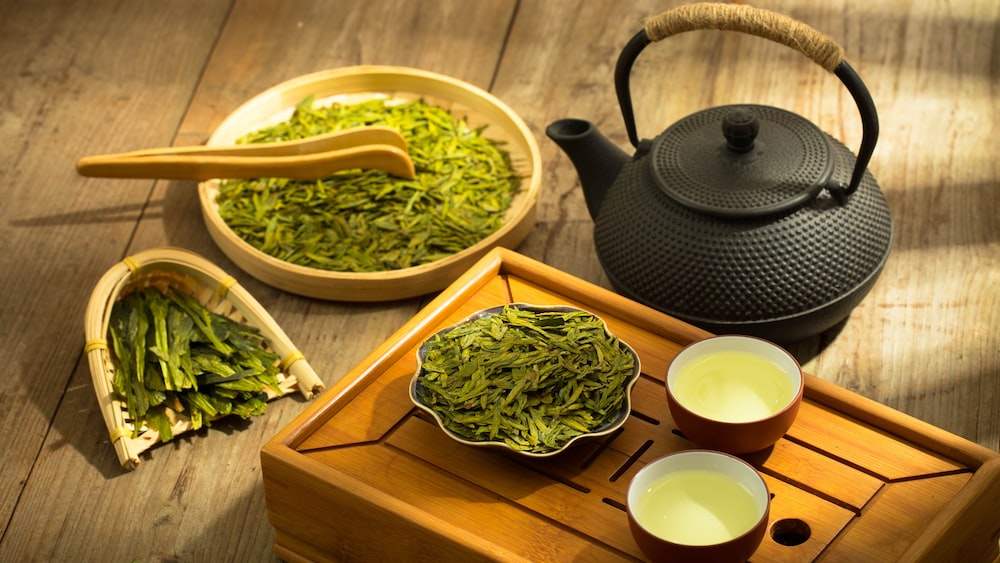
Interestingly, a survey conducted in Japan among the elderly found a potential correlation between green tea consumption and good sleep. Participants who drank one or two cups of green tea per day were reported to have better quality sleep. Now, isn’t that something to ponder as you brew your next bedtime cup?
Finally, the caffeine conundrum – yes, we’re back at it. Remember, caffeine’s effects can vary between individuals, and this, in turn, influences your green tea nighttime ritual. But more on that, tea folks, in our upcoming sections.
2. Reduces Stress and Anxiety
Imagine sipping a calming elixir that soothes your stress away. Sounds like a dream, right? Now, imagine that elixir is your humble cup of green tea. Many studies suggest that the L-Theanine in green tea can potentially reduce stress and anxiety.
One research outcome published in the Journal of Physiological Anthropology highlighted the proven stress-reducing effects of L-theanine, found abundantly in our green hero. Participants who ingested L-theanine experienced significant reduction in stress responses. So, taking this into account, your leisurely cup of evening green tea could be just the ticket to a more tranquil state of mind before bedtime.
Your leisurely cup of evening green tea could be just the ticket to a more tranquil state of mind before bedtime.
3. Improves Cardiovascular Health
Who knew that your cup of green tea could carry the rhythm of a healthier heart? Multiple studies indicate that green tea could potentially play a note in improving cardiovascular health, which, in turn, could benefit your sleep.
According to the European Journal of Cardiovascular Prevention and Rehabilitation, a meta-analysis revealed that green tea significantly improved blood pressure and cholesterol – two major music makers in the symphony of heart diseases. Now, isn’t that heart-warming (pun intended)?
Moreover, good cardiovascular health can indirectly promote better sleep. Having a healthier heart means less nighttime disruptions related to heart ailments, enabling you to dance through the stars towards dreamland. So, my dear readers, when wondering if green tea can help you sleep, think not only of L-Theanine and caffeine, but also about the cardiovascular crescendo that this emerald brew can conduct within your body.
4. Assists in Weight Loss
Can’t shake off those stubborn midnight munchies? Here’s a fun fact: sipping on a warm, comforting cup of green tea before bed might just be your secret weapon to weight management. Green tea is known to promote fat oxidation and boosting metabolic rate, turning you into a calorie-burning machine, even while you’re hitting the hay!
In fact, a study by the American Journal of Clinical Nutrition found that green tea increased fat burning by up to 17% and energy expenditure by 4%. It’s like effortlessly losing weight in your sleep, which, let’s admit, sounds too good to be true.
But wait, don’t start hoarding those green tea sachets yet! Balance is key, my dear tea-lover. Remember to incorporate regular exercise and a balanced diet for more effective weight loss results. You wouldn’t want your tea-drinking obsession to turn into a frightening love triangle with the bathroom scale, would you?
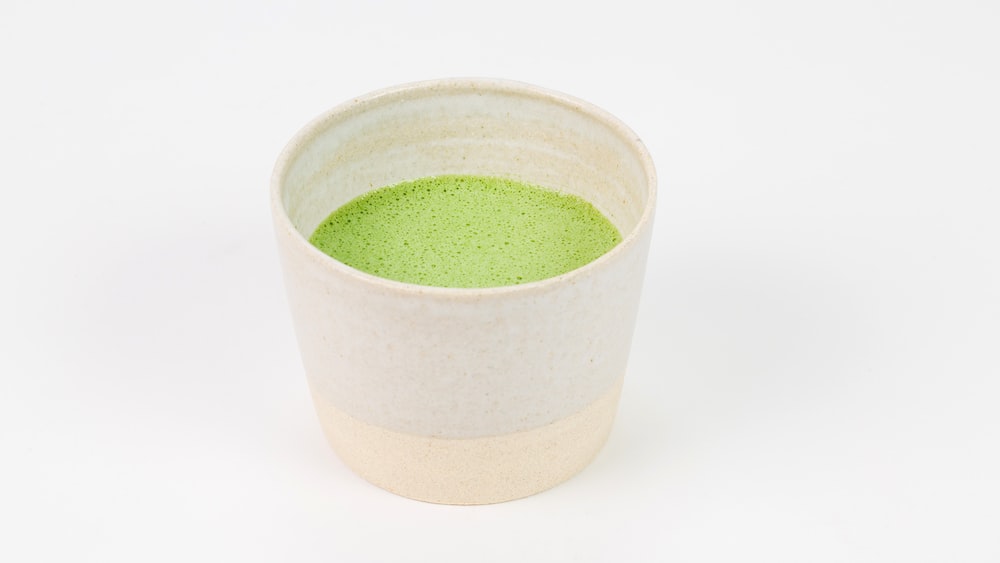
5. Boosts Immune System
Looking for a bedtime brew to ward off those pesky colds and flus? Look no further than our humble hero, green tea. It comes equipped with natural compounds, like polyphenols and catechins, that give it super-powered immune-boosting prowess.
These compounds fight off harmful bacteria and inhibit the growth of viruses, pretty much acting like a particularly zealous, tea-drenched bouncer for your immune system. So go ahead, include green tea in your sleep scope EEG, or nightly routine, to give your immune system the TLC it deserves.
Include green tea in your nightly routine to give your immune system a boost and ward off colds and flus.
6. Promotes Healthy Skin and Hair
Speaking of TLC, let’s not forget about our skin, everyone’s favorite living, breathing outfit. A well-crafted cup of green tea before bed isn’t just a treat for your taste buds, but also a pampering potion for your skin and hair.
The high content of antioxidants and anti-inflammatory properties work wonders in repairing skin cells, reducing redness and inflammation, and even combating acne. But why stop at your visage? Let your hair sip on some benefits too. Green tea is known for promoting healthy hair growth and preventing common issues such as dandruff and psoriasis by improving scalp health.
Imagine that, all from a humble brew. You’ll be positively glowing. But shh…let’s keep this powerful beauty secret between us tea-lovers, shall we?
7. Enhances Brain Function
Moving on to cerebrum-land, we find that green tea isn’t just a drink, it’s brain food! The caffeine in the tea acts as a stimulant, improving various aspects of brain function including mood, vigilance, reaction time, and memory. The beautiful catch is, it’s not enough to keep you jazzed up at night.
The sleep scope EEG, a tool used to monitor brainwaves during sleep, would confirm that green tea intake before bed may indeed contribute to better brain function. It’s the ultimate brain hack hidden in your tea cupboard.
8. Lowers Cholesterol Levels
As our tea-venture continues, we find that our beloved cup of green tea is also well-equipped to duel with the dreaded cholesterol monster. With its rich store of antioxidant compounds, green tea addresses the root cause of high cholesterol – oxidation of LDL particles.
By inhibiting this oxidation process, green tea effectively helps lower LDL cholesterol levels while increasing the “good” HDL cholesterol. It’s like a cholesterol see-saw where green tea is a valuable player tipping the balance in favor of health.
9. Reduces Risk of Cancer
Let’s get a tad serious for a moment, shall we? With its antioxidant properties, green tea has shown promise in being a potent ally in fighting against the big ‘C’ – Cancer. Research suggests that these antioxidants seek and destroy cancer cells, thereby preventing their growth and spread.
One particular type of antioxidant, the notorious EGCG (Epigallocatechin-3-gallate), has been heavily linked to fighting inflammation and preventing various types of cancer, including breast, prostate, and lung. You may think of green tea as the quiet superhero lurking in your teapot, hard at work safeguarding your health while you dream away.
10. Improves Oral Hygiene
Dreaming of a dazzling, Hollywood-style smile, but paranoid about the scary sounds from the dentist’s drill? Here’s an easier, and certainly less terrifying solution – opt for a refreshing cup of green tea each night. The catechins in the tea fight harmful bacteria in the mouth, reducing the risk of cavities and improving overall oral health.
Think of green tea as a type of bedtime tea that moonlights as a night guard for your precious pearly whites.

Sip on a refreshing cup of green tea each night to fight harmful bacteria in the mouth, reduce the risk of cavities, and improve overall oral health.
11. Lowers Risk of Alzheimer’s Disease
Finally, green tea might just prove to be a potent weapon against Alzheimer’s disease. Some studies suggest that the catechins present in green tea could help protect neurons in the brain, potentially lowering the risk of Alzheimer’s and Parkinson’s, the two most common neurodegenerative disorders.
Consider it this way – each sip could be a step away from these degenerative conditions, making green tea a type of bedtime tea that not just relaxes you, but shields the citadel of your thoughts and memories.
The Best Time to Drink Green Tea for Optimal Sleep
Wondering when to sip on your tranquilizing brew for maximum sleep benefits? The key lies in finding the sweet spot that best suits your personal body clock and metabolism. But hey, it’s as fun as finding your favorite tea blend!
Morning Consumption vs. Evening Consumption
Tea-enthusiasts are often torn between morning and evening consumption. Both have their own perks, but if better sleep ranks high on your agenda, then evening might be the winner. Sipping green tea a good few hours before bedtime allows suffcient time for the body to metabolize the caffeine, whilst reaping all the other fabulous benefits we’ve just explored.
Remember, every individual is unique and what works wonders for one may not be ideal for others. So, worry less about the ‘perfect’ timing, and more about how your body reacts. After all, understanding your body is the first step towards better health. And let’s not forget, enjoying your cup of tea is paramount!
The Impact of Individual Differences
Here’s a steamy tea tidbit for you – Did you know, your individuality can affect your tea-drinking, sleep-enhancing experience? Coffee enthusiasts may as well quiver their barista aprons because this applies to them too. Your bodies react to caffeine, the cheeky tea component, differently. Varying factors like your age, weight, and overall health profile can significantly influence how it interacts with your system.
For some, a modest cup of green tea before bedtime might etch them into the pleasant doodles of dreamland. But for others, even the hint of caffeine could be the equivalent of an adrenaline shot, sending them on nocturnal adventures across the bedroom ceiling – metaphorically, of course.
Moreover, your Metabolic rate – your body’s efficiency at breaking down caffeine and other stimulants – varies among individuals. So, while one person might sail off to La La Land, another could be lying wide-eyed, counting the number of times the ceiling fan spins, thanks to the same cup of green tea.
Your individuality can significantly affect how caffeine interacts with your body, making it important to consider factors like age, weight, and overall health profile when it comes to tea and sleep.
Potential Downsides of Drinking Green Tea Before Bed
However, a word to the wise before we let the lure of potential benefits get the better of us: while green tea can be a medicine for some, overindulgence or ill-timed consumption may brew a pot of problems for others.
Possible Increase in Nighttime Wakings
Remember the tricky caffeine component I mentioned earlier? Yes, the stimulant that gets some people organizing their sock drawer at 2 a.m. As ironic as it may sound, for all its sleep-enhancing qualities, there’s a chance that green tea might just be the cat burglar to your sleep vault. If consumed too late, it could increase nighttime awakenings, and believe me, there’s nothing more annoying than having to fight sleep away when you have a date with 7-8 hours of blissful slumber.
Caffeine in green tea can have that same pesky effect as the urge to pee in the middle of a dreamy night. It interrupts your sleep cycle, making you more alert when you least want to be. Let’s not forget the potential tick to your heartbeat that it could cause, leading to increased activity and arousal during your supposed downtime.
Additionally, it’s possible some folks might experience mild to moderate gastrointestinal issues (think the bourgeoisie version of a bellyache). So it’s a fair thought – going gentle with the green tea indulgence might just save you from a midnight trip to the loo and save your undisturbed stellar beauty sleep.
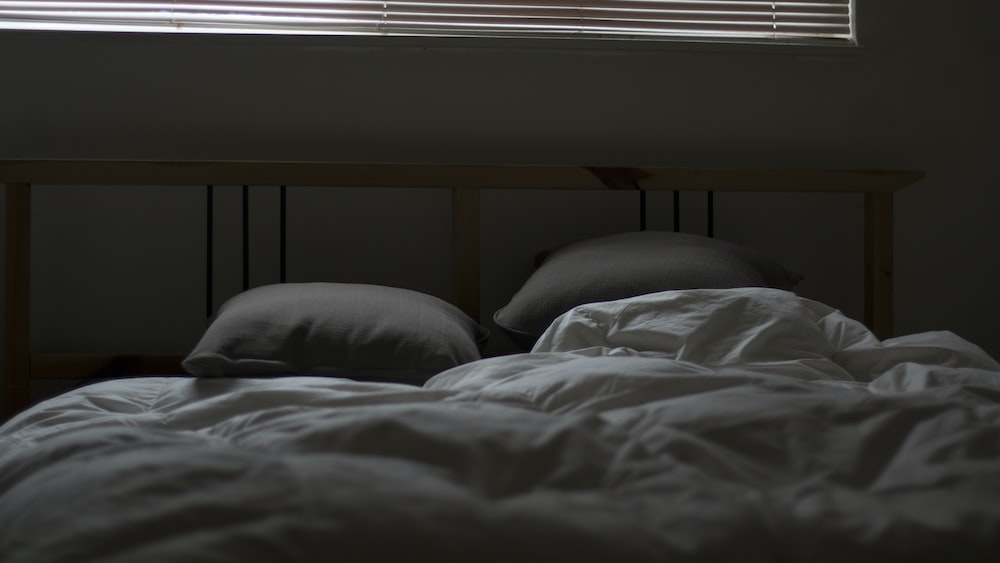
The Effect of Overconsumption
Sure, we’ve established that green tea is not just your ordinary cup of Joe (it’s way more sophisticated, darling), but let’s not wear the glow off this gem by overdoing it. Remember, too much of a good thing is, you guessed it, too much.
In terms of green tea, sloshing down litres of it might sound like a fabulous way to complement your health regimen, but excessive consumption might lead you into the trap of health adversities like liver problems, nutrient malabsorption, and believe it or not, just like that burglar, it could hijack your peaceful night’s slumber. Exercising moderation is key; you wouldn’t want to drown your health benefits in a surfeit of green infusion, would you?
FAQs
1. How Much Green Tea Should I Drink for Better Sleep?
Determining how much green tea you should drink for better sleep isn’t a clean-cut answer. This may vary between 2-3 cups per day, but it’s best tailored according to individual health profile and tolerance.
2. Can I Drink Green Tea If I’m Sensitive to Caffeine?
If you’re sensitive to caffeine, tread lightly on the route of green tea. Consider drinking it earlier in the day or opting for low-caffeine or caffeine-free varieties.
3. Are There Any Specific Types of Green Tea That Are Better for Sleep?
Certain types of green tea like magnolia tea, which has stress and anxiety-reducing properties, may potentially provide better sleep benefits.
4. Can Green Tea Replace Sleep Medications?
While green tea can help enhance sleep, it should not be used as a replacement for prescribed sleep medications. Always consult a healthcare expert for personalized advice.
Conclusion
So, there you have it – a deep, detailed dive into the fascinating labyrinth of potential sleep-enhancing benefits of green tea. From the teapot to your body’s sleep button, can green tea help you sleep or not depends on various factors ranging from their quantity and timing of drinking, your personal health, and the type of green tea you choose. Remember, it’s all about creating balance.
Drinking green tea can be an enhancement to a happy sleep hygiene routine, also packed with a myriad of health benefits. However, it does come with its caveats. But isn’t that what life’s all about – finding that sweet spot between risk and reward, delicacy and decadence, and in our particular case, sleep and alertness?
As you mull over your next pre-bedtime brew, take away this thought – green tea might just be the bedtime ally you’ve been looking for. So, until next time, steep well and sleep even better. This is Zoe, brewing love and sleep wisdom, one cup at a time.

